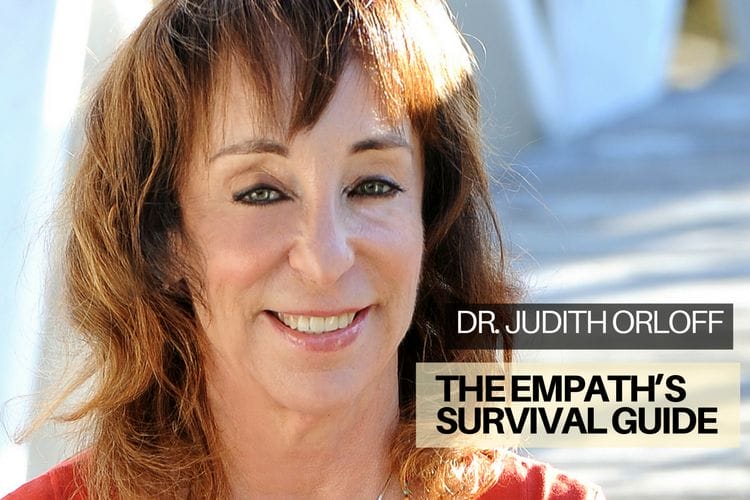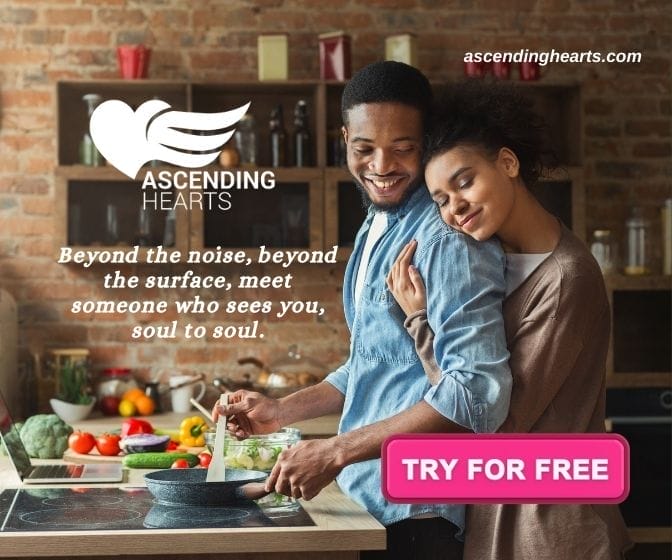Judith Orloff: The Empath’s Survival Guide

Dr. Judith Orloff, is an intuitive, an empath, and an expert on helping others understand and work with these gifts.
Judith Orloff – Life Strategies for Sensitive People
Have you been told that you are too sensitive to family and friends? Do you actually feel the feelings of others, both positive and negative, as though they were your feelings? Do you experience the physical and emotional pain of others? Empathy is a quality that most humans share, but being an empath goes much deeper. It can entail the full gamut of experiencing what others experience, without filters. It can make it difficult to separate your personal feelings from what you are picking up from the outside world.
Dr. Judith Orloff, is an intuitive, an empath, and an expert on helping others understand and work with these gifts. Dr. Judith Orloff is a leading voice in the fields of medicine, psychiatry, and intuitive development. An Assistant Clinical Professor of Psychiatry at UCLA, her bestselling books include Emotional Freedom, Positive Energy, Dr. Orloff’s Guide to Intuitive Healing, and Second Sight. Her website is http://www.drjudithorloff.com. She joins me to discuss her latest book, The Empath’s Survival Guide – Life Strategies for Sensitive People. It is my great pleasure to interview an amazingly gifted woman and someone whom I have the privilege of calling a personal friend, Dr. Judith Orloff.
Judith Orloff Interview by Victor Fuhrman
To listen to the full audio interview of Dr. Judith Orloff by Victor Fuhrman on the radio show Destination Unlimited on OMTimes Radio, click the player below:
VICTOR FUHRMAN: Let us talk a little bit about your path for our listeners and readers who may be meeting you for the first time. What was it like growing up in a family of physicians?
JUDITH ORLOFF: I had two physician parents, and I come from a family of 25 physicians, and I was a little girl who was an empath. An empath is somebody who can sense intuitively what is going on in others and absorbs the energy into their own bodies. Empaths are emotional sponges. The positive side of that is that it really gave me a deeper connection to the universe and to myself. Certainly now, as a psychiatrist, my empathy helps me with my work, my connections, my ability to love, my connection to nature.
As a child, I did not know what was going on when I walked into crowded places. I would walk in fine and then leave exhausted, or sick, or depressed, or anxious, or something. There is a section in the book about raising empathic children and what to do if you are an empathic parent. I feel so strongly having gone through that as a child and not being given the support I needed.
VICTOR FUHRMAN: How old were you when you first realized that you had these abilities?
JUDITH ORLOFF: I think I always had them from the moment I was born, but I think when I realized it more was when I started to go out into crowds. That is when the empathy got really exacerbated because I got so overwhelmed, or when going to parties with my friends. So, I would say maybe nine or ten, but certainly as a teenager. I was all alone, and I had no guidance about how to handle this empathy and this intuition that was just flooding into me too much and too fast.
That is one motivation for writing this book to help people to identify if they are empaths. It is a diagnosis. That is a specific diagnosis that needs certain treatments. It does not usually need medication. There are so many other things you can do before medicating anxiety, or depression, or agoraphobia, which empaths often get misdiagnosed as.
“What if your child is an empath?” is a quiz in the book to get a grip on it, so you know what you are. It is kind of like when somebody finds out they are an alcoholic. And they go, “Oh my God, that is what I am, and now I know what to do.” The same is true with being an empath. I get so many emails and letters from people saying thank you for helping me realize I was an empath.
VICTOR FUHRMAN: Is this gift something that is inherited?
JUDITH ORLOFF: Yes, it seems so. In my family, it was passed down through the women. My father was not an empath. He had a whole different constitution, and was not absorbed in this. He did not take on energy from other people, but empaths do. Yes, I think it could even be genetic. I think when they get down to looking at this genetic component they are going to find something that is passed down. Certainly, Elaine Aron has done research on highly sensitive people, and she has found that they are 20 percent of the population. That is a pretty high percentage.
VICTOR FUHRMAN: How did you choose psychiatry as your specialty?
JUDITH ORLOFF: Well, I went into psychiatry by a dream I had where a voice came to me to let me know that I was to become a psychiatrist to help legitimize intuition. In that realm of medicine and empathy, by the way, is a form of intuition. I did not think the dream would come true, but time passed and one year became two years and became 14 years of medical training. So, it was not what I wanted to do, logically, going to medical school like that. I went to medical school just trusting that I was supposed to do it because of this dream.
VICTOR FUHRMAN: Judith, so many people are told things like “You are too emotional,” or “You are too sensitive.” And they grow up feeling like there is something wrong with them. In your experience, are many of these people empaths?
JUDITH ORLOFF: Yes, many of the people who have been told there are something wrong with them, or they are too sensitive, or too this or too that, are empaths and, by the way, you are not too anything! You are 100 percent who you are, and you want to maximize that. You want to maximize your sensitivity, and that is what the book is about, how to maximize it without absorbing so much stuff that you are becoming exhausted.
VICTOR FUHRMAN: What are some of the common traits of an empath?
JUDITH ORLOFF: There is a quiz at the beginning of the book. Some common traits of an empath include: “I require alone time to refuel myself” and “I do not refuel myself with people.” The signature of an empath is that they love to replenish themselves alone and that is very different from extroverts. “Do I get drained by noise, crowds or excessive talking?”
Empaths have a very strong sense of smell, so if they walk into an elevator with perfume in it, they can often feel suffocated, whereas other people will sense, “Oh what a beautiful smell,” so it is a different perception. “Do I often feel that I do not fit in?” “Crowds drain me. and do I need alone time to revive myself?” “Do I prefer taking my own car to places so that I can leave early if I need to?” Empaths need to escape. They cannot stay somewhere for five hours and socialize, it is impossible.
“Do I overeat to cope with stress?” There is a chapter in the book on empaths and addictions, and often empaths like to put on a lot of weight because the armor stops you from feeling other people’s pain and negative energy. Yes, that is one element, overeating. If you try diets and they fail, if you are an empath maybe you need some more techniques and strategies in addition to the diet that can help you deal with the energetic component of it. This is a big one, too. “Am I afraid of becoming suffocated by intimate relationships?”
VICTOR FUHRMAN: What about the environmental stimulus. For example, are empaths more sensitive to fluorescent lighting, or electromagnetic energy?
JUDITH ORLOFF: Yes, they sense electromagnetic energy and are sensitive to solar flares, changes in electromagnetic energy, computers, and radiation from any kind of technical device. It can make them sick and tired, and so empaths must really take some steps to take care of themselves around that, and they do not do so well with a lot of power lines. I know that is impractical if you live in a city, but it is true. Also, I just want to say that empaths are very sensitive and tuned into animals. There is a type of empath I talk about in the book called an Animal Empath, where they have a special communion with animals and can feel their needs and can communicate with them. Some of my empath patients are vegan because they feel the suffering of the animals if they eat meat.
Go to Page 2 of the Interview with Judith Orloff: The Empath’s Survival Guide
Rev. Victor Fuhrman, MSC, is a healer, spiritual counselor, and author whose deep, rich, compassionate and articulate sound inspired the radio handle, “Victor the Voice”. A former armed forces broadcast journalist, Victor Fuhrman is a storyteller by nature and an inspiring public speaker. He brings unconditional love, compassion and a great sense of humor to his ministry. Victor is the Host of Destination Unlimited on OMTimes Radio, Wednesdays at 8:00 PM ET. http://omtimes.com/iom/shows/destination-unlimited/





